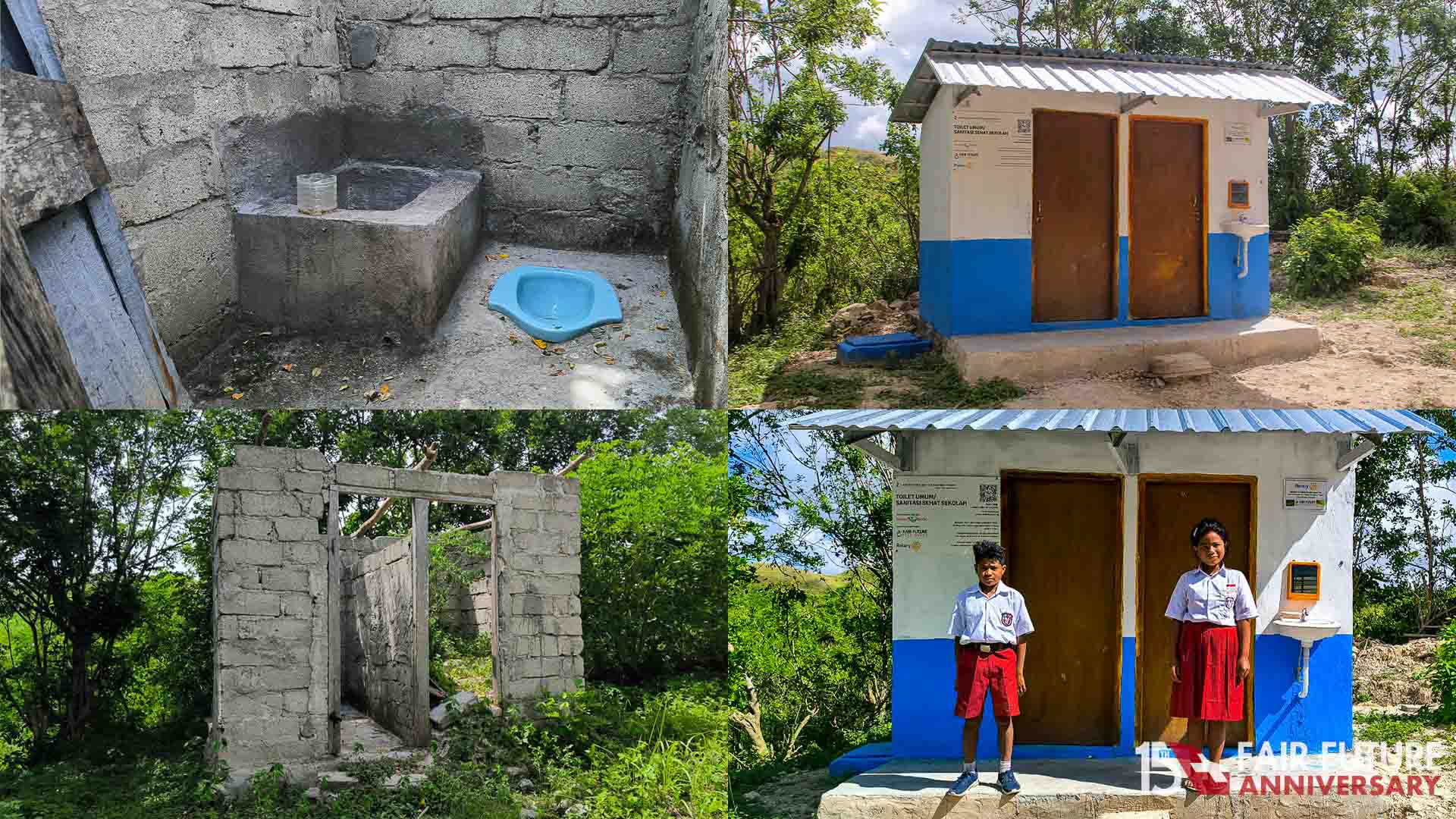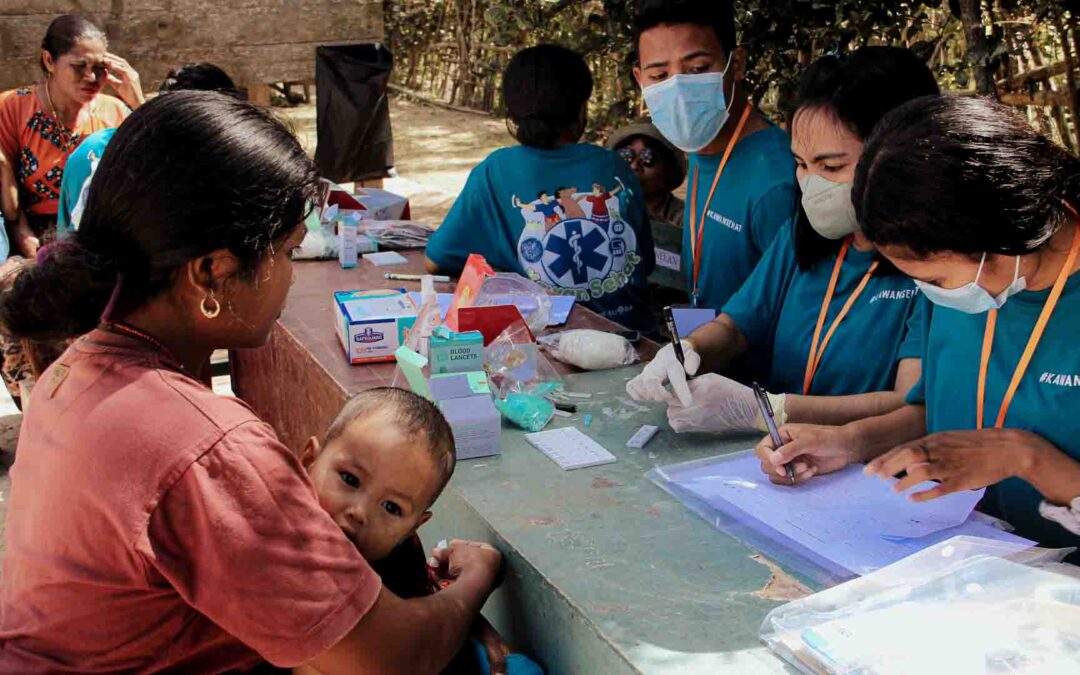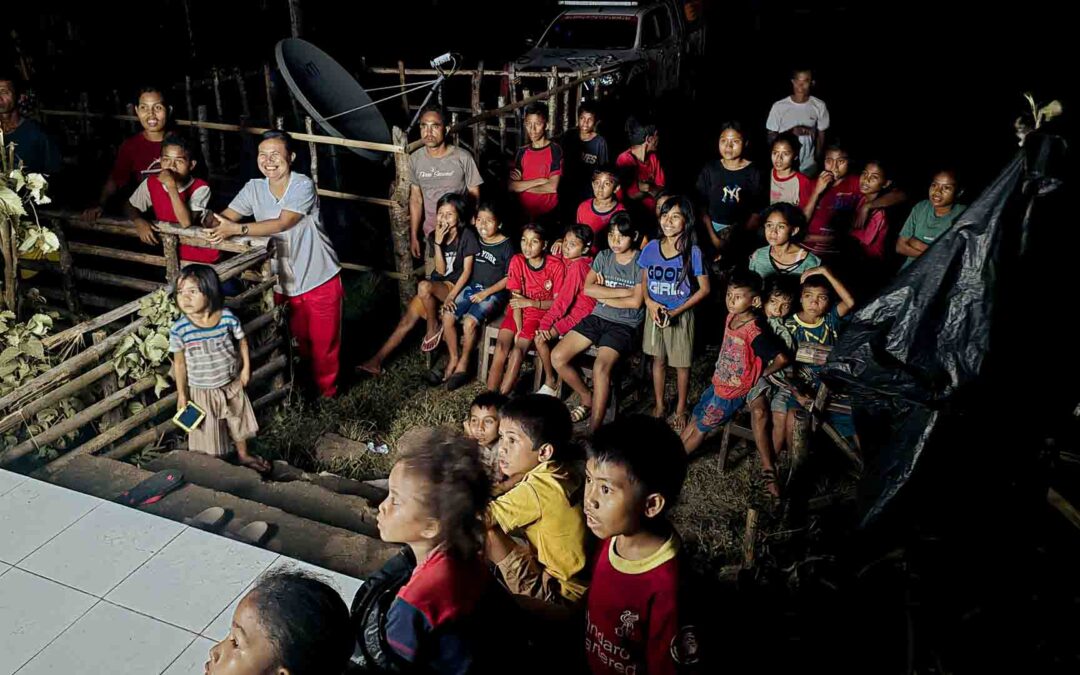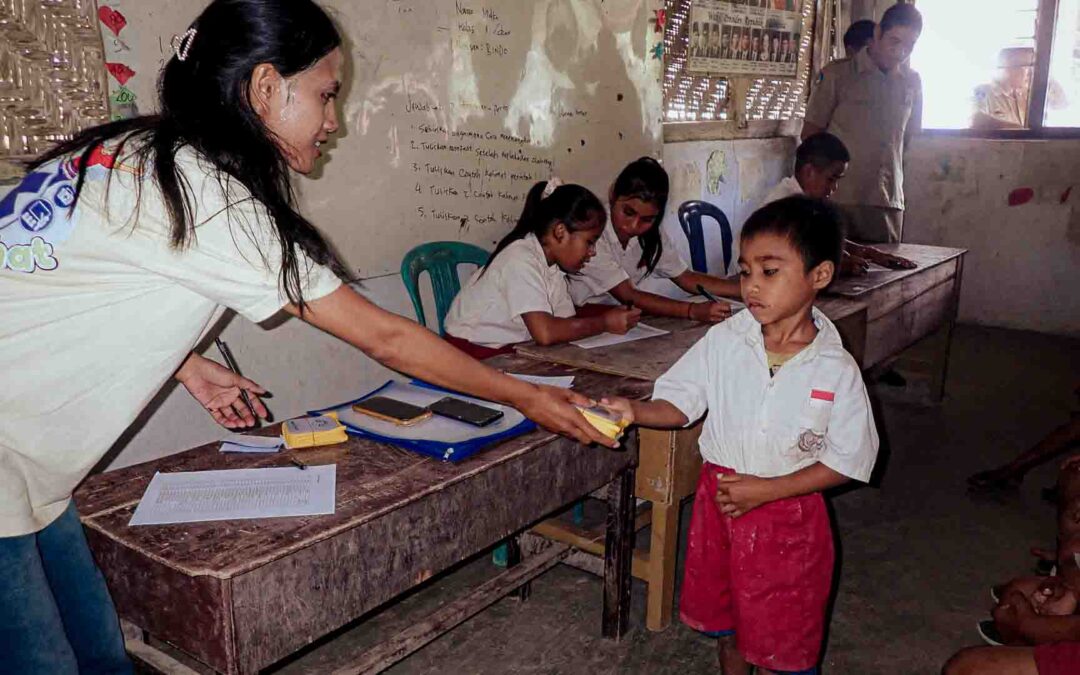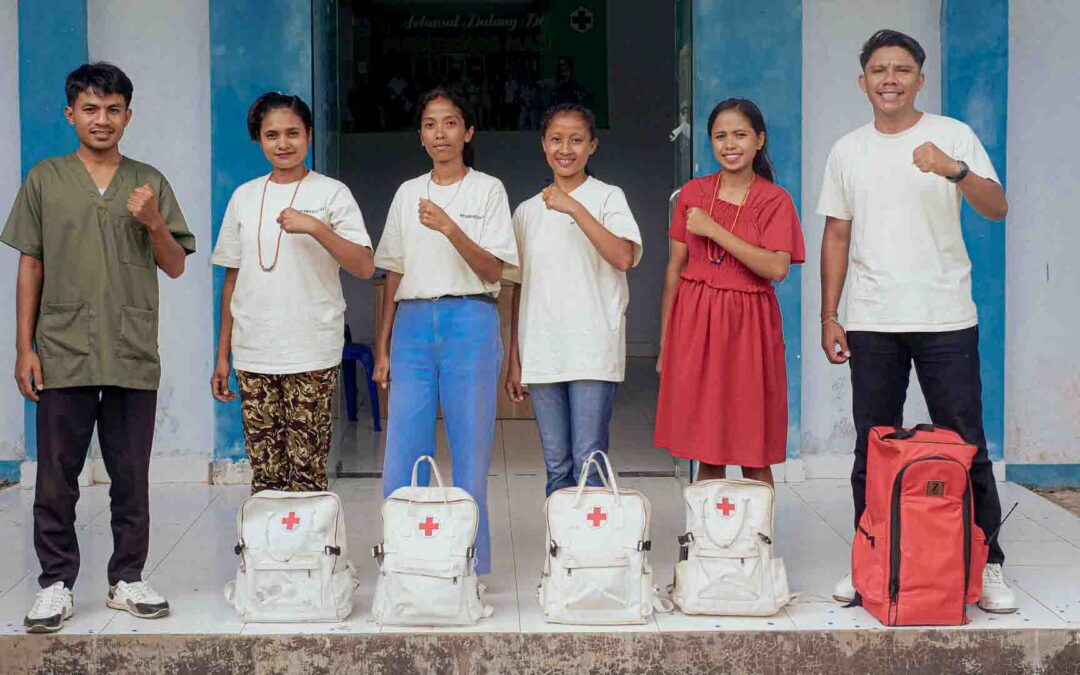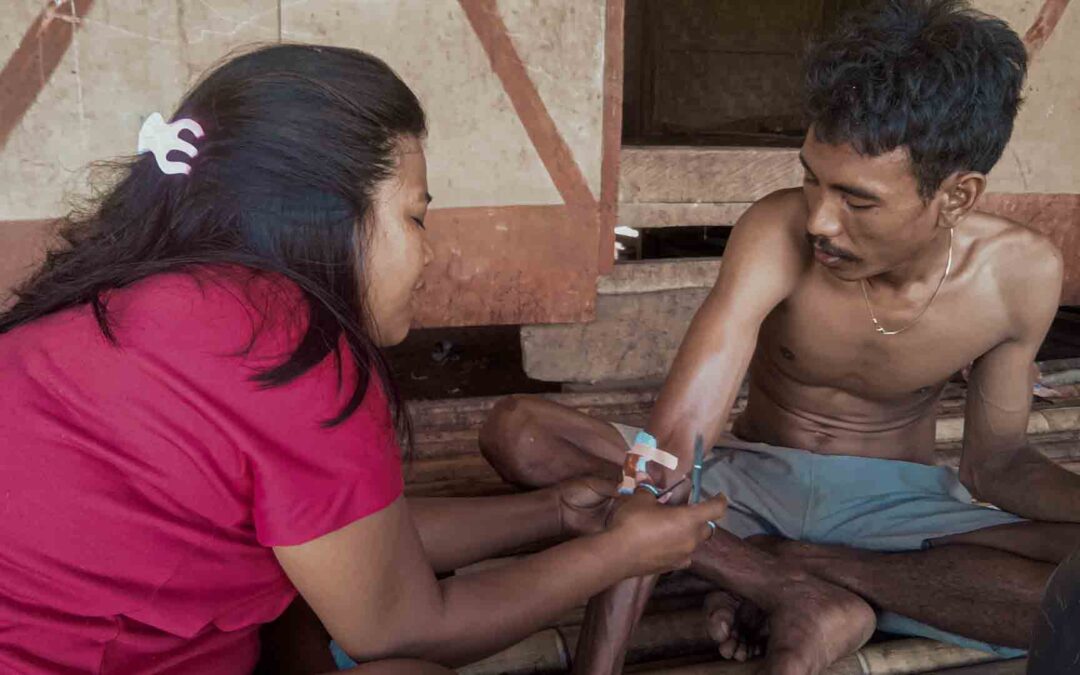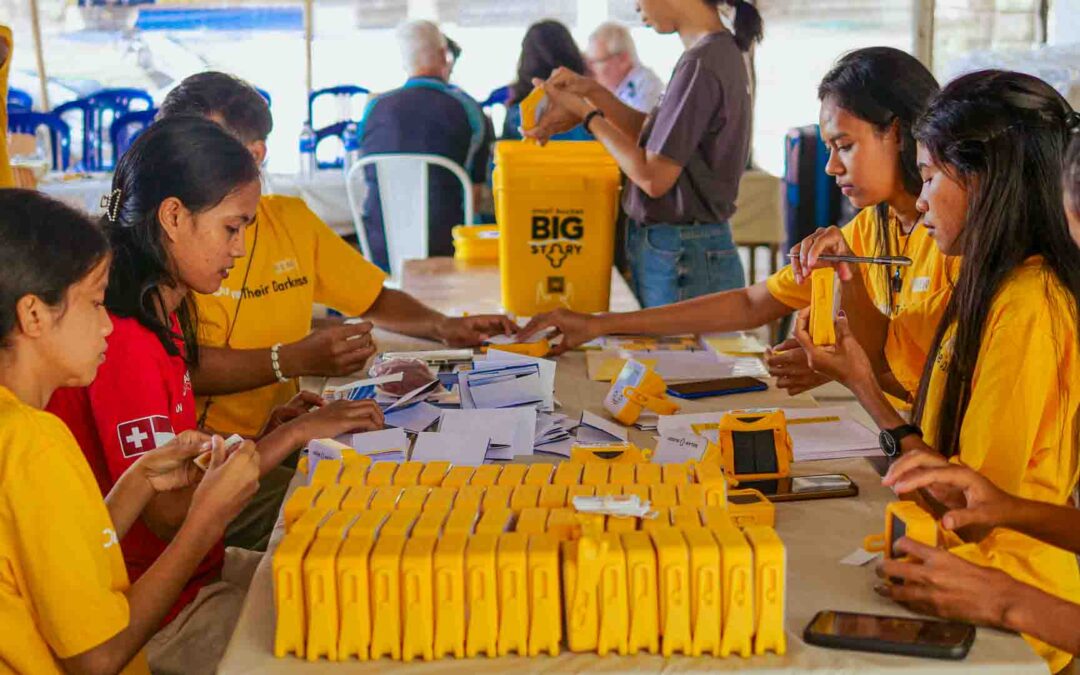It is absolutely crucial to transform unsanitary school toilets into clean and hygienic environments in remote rural areas to effectively prevent the spread of diseases like malaria, dengue fever, and polio. By implementing and promoting safe sanitation practices and ensuring access to clean water, we can significantly enhance living standards and improve health outcomes for children and their families.
This image is in 1920×1080 resolution. Click on it to enlarge and view at full size.
Improving Living Conditions in Rural Areas
The latest “Photo of the Day” illustrates how our Foundation’s work is making a significant difference in areas where basic sanitation is scarce. Our rehabilitation efforts are transforming ultra-rural spaces that once posed serious health risks into safe and hygienic environments, essential to preventing diseases such as malaria, dengue fever, dysentery, and polio—which has sadly resurfaced in this region.
This photograph highlights a horrifying example of a school toilet that was virtually unusable due to its lack of basic amenities such as water, doors, a roof and even a septic tank. These so-called “toilets” were unsanitary structures that posed significant health risks to students who could not use them or relieve themselves outside near the school premises, further increasing public hygiene risks in a locality already affected by the disease.
Before our intervention, nearly 100 children enrolled in this school did not have access to hygienic sanitation facilities and clean water. Our teams deemed this unacceptable since the area is infested with malaria. Therefore, we have entirely redeveloped these toilets into two clean and healthy toilets, thanks to the initiative of our Foundation. Currently used daily by children and educators, they promote safety while creating an environment conducive to well-being.
“In regions where a simple toilet can save lives, our commitment to transforming unsafe spaces into clean, safe environments is a testament to our belief that every child deserves dignity and health.” — Alex Wettstein, CEO and Founder of Fair Future.
Due to insufficient toilet blocks for 100 children, two additional toilets (on the standard iron and cement model) are expected to be built soon. These facilities allow infants to wash their hands frequently and consume clean water while having access to potable water sources at home. Basic hygiene practices such as handwashing instilled by teachers would become ingrained habits throughout society, significantly contributing to stopping the spread of diseases and ensuring that posterity enjoys better health outcomes.
The Water Connections programme encompasses this intervention, which goes beyond its scope to significantly improve the well-being of ultra-remote communities. Fair Future sees it as a critical initiative to improve standards and reduce infectious diseases—particularly those linked to unsafe water sources or inadequate sanitation, which leads to child mortality rates. To maintain overall good health and dignity throughout youth, everyone must first have access to clean and accessible environments from an early age.
Fair Future Foundation medico-social camp in East Sumba – Rumah Kambera, Lambanapu – The 12th of Auguts 2024.



